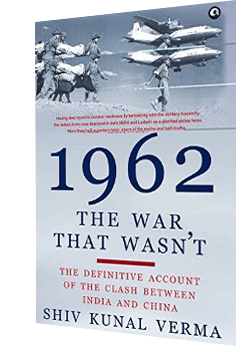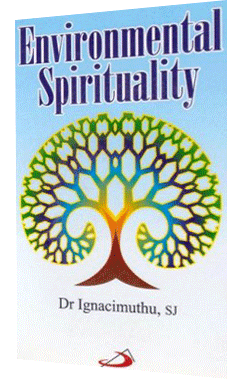1962: The War That Wasn’t by Shiv Kunal Verma ; Aleph Book Company, Rs.553, Pages XXI+425
 This is a well-written book and charts in considerable detail, all the major battles of the 1962 conflict between India and China in both the north-east and western sectors. The narrative is riveting and supported by maps particularly of battles in the eastern sector, as well as reproductions of photographs of many important personalities and events associated with the conflict culled from multiple sources.
This is a well-written book and charts in considerable detail, all the major battles of the 1962 conflict between India and China in both the north-east and western sectors. The narrative is riveting and supported by maps particularly of battles in the eastern sector, as well as reproductions of photographs of many important personalities and events associated with the conflict culled from multiple sources.
They add heft and immediacy to the book that are lacking in most historical texts. To recreate in detail the accounts of battle, Verma certainly had access to personal reminiscences and he communicates the immediacy and tension of battle, as well as the bitterness of defeat with verve and feeling. For these reasons alone, this book must belong to the shelves of any student of India’s wars.
The War that Wasn’t is not just an exercise in historical recreation but an attempt to put forward a particular point of view and explanation of events. And this is where it falters.
The fact that the author wears his Army connections on his sleeve also means that this is a book that reflects a military mindset and thinking. Verma’s biases are often quite clear and of a piece with what many Army offices across generations since independence have largely thought of their politicians and leaders, in particular Jawaharlal Nehru, prime minister in 1962. And these biases seep through the pages at various points in the portraits that the author draws of Nehru and his supporting cast of incompetent minions on whose shoulders lies the blame for India’s defeat.
To be fair, Verma does not spare the Army leadership either. He states while “Nehru, (Krishna) Menon and Bijji (Lt. Gen. B.K) Kaul become the focal points at whose feet India’s defeat was laid… (i)n a way, this acted as a smokescreen and most of the culprits responsible for the debacle got away scot-free. None of the senior officers were censured or brought to book,” and he isn’t afraid to take names throughout the narrative.
The susceptibility of Indian Army officers as they climb the hierarchy to political pressures or to engage in politicking themselves, is well known. However, equally important to note is the reality that right from the beginning of their careers, they accept senior officers’ orders even if they are patently lacking in logic or fairness.
This is seen as a matter of “maintaining discipline” — the core consideration that separates the Indian Army from bumbling civilians. Officers might make mistakes but the Army has its own ways of punishing such lapses. In truth, the Indian Army has a massive colonial hangover — it has failed to realise that it is supposed to uphold political values quite different from what obtained when many of India’s regiments or armed units were first raised.
What follows is fetishization — of the vardi, the uniform, unit cohesion or esprit de corps — and machismo of following orders. In fact, the question that needs to be asked is whether the Indian Constitution is as important to the average Indian officer and soldier as the Indian flag or the izzat of the paltan. Are Indian Army officers and men also thinking citizens of the Republic or lemmings who will not and are not allowed to, question their superiors even when the latter lead them to doom or are patently in the wrong? These are questions that remain pertinent even today.
All wars are political exercises, not least Mao Zedong’s conflict with India in 1962, and success or blame, in the final reckoning belong to the political masters. But it is the duty of generals to be prepared when the call comes to ready themselves not for the war they want to fight, but for the war the enemy thrusts upon them.
The same principle applies to bureaucrats, diplomats and analysts in their respective lines of work. The author makes a telling remark towards the end in his analysis of how the Indian Air Force never ended up being used in the conflict that shows up all four groups. “The problem probably lay in the difference between availability of intelligence and the ability to interpret it,” observes Verma.
In 1962, the reality was that India’s troops, successful in two world wars across multiple theatres and all types of terrain, came up short. The failure was not just the result of lack of political foresight and diplomatic acumen, but also of military leadership, of insufficient research and study of the communist regime on the country’s northern borders. It was also a failure of the citizenry that clamoured for ‘action’ and ‘results’ despite the desperate odds faced by their soldiers.
Over 50 years on and despite successes against Pakistan, events down to the present show that all parties concerned in India continue to prefer dealing with the ‘familiar enemy’ of Pakistan and ignore or delay the steps required to face up to the longer-term and substantive challenges posed by China — military and otherwise.
Jabin T. Jacob (Excerpted from The Book Review, December 2016)
A transcending obligation
Environmental Spirituality by Dr. Ignacimuthu, SJ ; St. Paul’s Mumbai, Rs.80, Pages 126
 That our fragile Planet Earth is confronted with a grave ecological crisis is a reality which few would deny. The impact of unbridled greed and growth, excessive consumption and production has left a huge proportion of the earth’s resources depleted and exhausted. Concerned with where the earth is heading, people are responding in differing ways to this monumental crisis. In this regard, what role can various spiritual creeds of the world, which command the allegiance of vast millions, play?
That our fragile Planet Earth is confronted with a grave ecological crisis is a reality which few would deny. The impact of unbridled greed and growth, excessive consumption and production has left a huge proportion of the earth’s resources depleted and exhausted. Concerned with where the earth is heading, people are responding in differing ways to this monumental crisis. In this regard, what role can various spiritual creeds of the world, which command the allegiance of vast millions, play?
In this slim but deeply insightful book, the author, a Jesuit priest and academic (former vice chancellor of the University of Madras, Chennai and Bharathiar University, Coimbatore), cogently presents the case for ‘environmental spirituality’, which he believes is inherent in all religious traditions. It is, he argues, the antidote to the imminent ecological doomsday.
The devastation Planet Earth faces today is, at root, the by-product of a spiritually bankrupt worldview premised on a deeply problematic definition of ‘development’, and the related belief that the purpose of life is maximisation of sensual pleasure, material acquisition and consumption. This being the case, overcoming it necessitates inner transformation of individuals and communities, a complete change in how we perceive the purpose of our lives.
In this scenario, ‘environmental spirituality’ has a key role to play, says Ignacimuthu who defines the term as “the spirituality that arises from experiencing the Divine in and through the environment.” Mankind must use the gifts of nature judiciously by curbing wastage and embracing sustainable development. It requires human beings to acknowledge that this beautiful world has not been created merely for the species homo sapiens, but for all animal and plant life and recognises and celebrates their interdependence.
Several spiritual traditions, we learn from the book, promote minimalistic lifestyles and condemn greed, wastefulness, over-indulgence and material accumulation. The great religions of the world emphasise that human life is temporary, and caution against excessive indulgence which might cause us to deviate from the righteous path. These teachings, if practiced by individuals, can reduce the burden on mother earth, prompt changes through eco-friendly practices and simultaneously enable us to develop spiritually. Environmental spirituality, as defined by the author, transcends all religious and national boundaries.
Much of the book is devoted to highlighting teachings of diverse religious and spiritual traditions which can form the basis of environmental spirituality. In Hinduism, for instance, Ignacimuthu says all things are regarded as manifestations of the Divine, and this understanding promotes love and respect for all life, including animals and plants. In Judaism and Christianity, the belief that the world is God’s creation and He values all creatures, requires Jews and Christians to honour all of God’s creations.
Likewise, according to Islam, everything in nature testifies to God’s existence and human beings are God’s vice-regents on earth, which has been given them to hold in trust. Buddhism advocates non-violence, peace and compassion for all life forms. These common tenets binding all religious creeds mandate a nurturing relationship with the environment.
Unfortunately, for several millennia when the earth’s population was stable, it was commonplace to understand nature’s bounties as something that existed simply for humans to exploit. This assumption is the prime cause of the ecological disaster threatening our planet today. The world is a creation of God, manifesting his generosity and compassion towards all life forms. Ignacimuthu urges us to relearn the importance of actively cultivating this mystical sensibility.
The Earth matters, and preserving its nature should matter to everyone. That is the message of this little book, packed with ecological wisdom drawn from major religions to provide much-needed direction and inspiration.
Roshan Shah